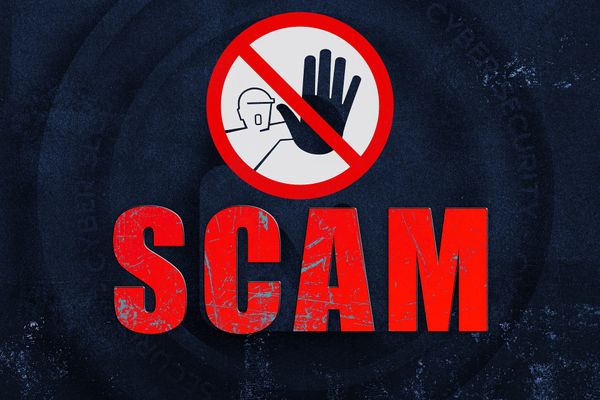How to protect yourself from losing money on scams in 2024: Your practical action plan.

Behind every scam is a thief attempting to take your money. The only way to keep them at bay is to arm yourself with knowledge and tools. We have compiled the basics needed to safeguard your money and personal data without spending a fortune or investing too much of your free time.
Safeguarding your hard-earned money requires a proactive approach and a well-thought-out strategy in 2024. If you resonate with this idea, continue reading, and perhaps save this practical action plan to shield yourself from falling victim to scams. Feel free to share it with those you want to protect against financial fraud.
Did you know?
U.K.: Fraud is on the rise in the U.K., with victims losing £580 million in just the first half of 2023 – and losses for the entire year are expected to exceed £1 billion.
USA: Fraud cost U.S. consumers more than $7 billion in the first three quarters of 2023, marking a 5% increase from the same period a year earlier, according to the Federal Trade Commission.
Follow our five top tips to keep your money and personal data safe, and avoid becoming a devastating fraud statistic in 2024.
Key actions:
1. Always verify legitimacy. Before responding to any email, message, or phone call requesting personal or financial information, take the time to verify the legitimacy of the sender. The same caution should be applied to online ads on social media or messages received through apps.
You have two options:
1. Use Bitdefender Scamio, our free scam detector, to quickly determine if someone is trying to scam you. You can copy-paste the message, upload an image, send a link, or describe your situation. Scamio analyzes it and informs you if it's safe or not.
2. Conduct some detective work and contact the company/brand/person using information from their official website to confirm the authenticity of the communication you received. For example, if it's an email, click to check the email address of the sender instead of just looking at the name. If it's happening over the phone, get a number you can call the person back at and then search to see if it's a legitimate number.
When in doubt, seek a second opinion. Call a friend or child/parent, describe your dilemma, and ask their thoughts. Always seek independent or legal advice if an offer involves money, time, or commitment. You'll be amazed at how new insights can clarify a situation. Besides, we are here to help and rely on each other.
2. Be skeptical of emails received after being exposed in a breach. Be cautious with unsolicited offers, emails, and messages you receive after your information has been involved in a breach. These are likely to be phishing emails exploiting the fact that your address was leaked in an incident. Avoid responding to them, especially those promising quick and substantial money gains or lifetime opportunities.
You can instantly identify breaches that exposed your data by using the Bitdefender Digital Identity Protection service. It can help you make sense of, and promptly delete, the potential spam avalanche that might follow a data breach. Digital Identity Protection offers valuable protection if you've been a data breach victim. It helps prevent identity thieves from accessing your bank accounts, credit cards, and other financial products in your name.
3. Secure your devices. Commit to a day within the next two weeks when you will update the security software on your computer, smartphone, and other devices. Ensure they have up-to-date security software, change your passwords to strong ones (or use a password manager), and enable two-factor authentication.
A few hours of effort could save you from days of stress, panic, and potential financial loss.
4. Monitor your accounts and credit report: Regularly review your bank and credit card statements for any unauthorized transactions. Set up account alerts to receive notifications of unusual activity, providing an early warning system against potential fraud.
Scour your credit report for any unfamiliar accounts or searches – and if you find any, query them immediately, as they could reveal a fraudster using your identity.
5. Stay informed. You are 80% less likely to fall victim to a scam you have read about. One of the most important things to avoid scams is knowing the tricks scammers use. People who are informed about a specific scam are 80% less likely to get caught up in it. Even if they do get involved, they're 40% less likely to lose money or share important information, according to the FINRA Investor Education Foundation.
For the latest news about spam, check out our dedicated blog category.
6. Report scams. Don't be embarrassed about reporting a scam. Because scammers are cunning and clever, there's no shame in being deceived. By reporting it, you'll make it more difficult for them to deceive others.
By following these steps, you empower yourself to navigate the digital landscape with confidence and resilience against scams. Stay informed, stay vigilant, and share this practical action plan with others to collectively build a safer online community.
tags
Author
Cristina is a freelance writer and a mother of two living in Denmark. Her 15 years experience in communication includes developing content for tv, online, mobile apps, and a chatbot.
View all postsRight now Top posts
Start Cyber Resilience and Don’t Be an April Fool This Spring and Beyond
April 01, 2024
Spam trends of the week: Cybercrooks phish for QuickBooks, American Express and banking accounts
November 28, 2023
FOLLOW US ON SOCIAL MEDIA
You might also like
Bookmarks








